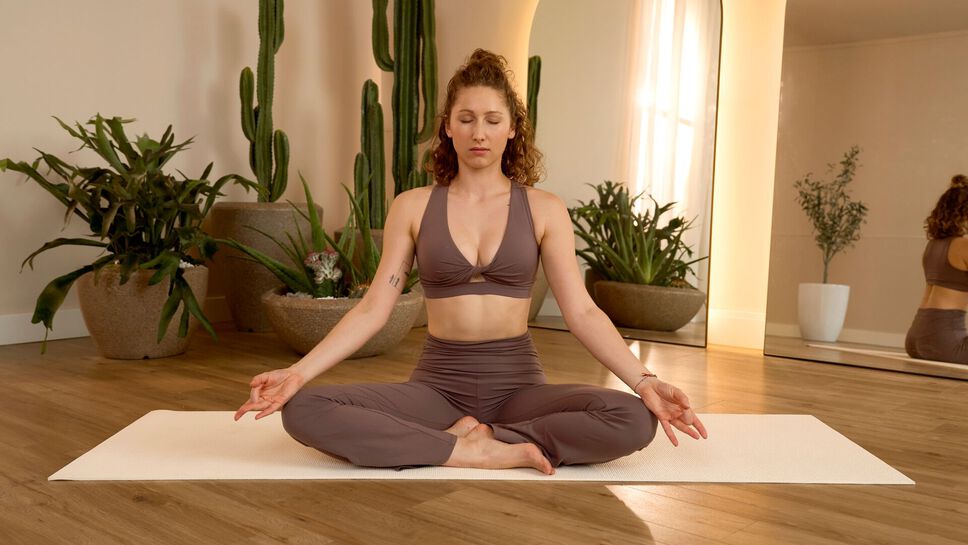Dragging yourself through the day after a bad night’s sleep is exhausting. Maybe you lie awake for hours, wake up in the middle of the night, or open your eyes in the morning already tired. Poor sleep is common, and it takes a toll on your energy, focus, and recovery.
The good news is that you can train your body to rest better. With a few small changes, you’ll fall asleep faster, spend more time in deep sleep, and wake up feeling more refreshed.
In this article, you’ll find 6 practical, research-backed tips you can start using right away to improve the way you sleep.
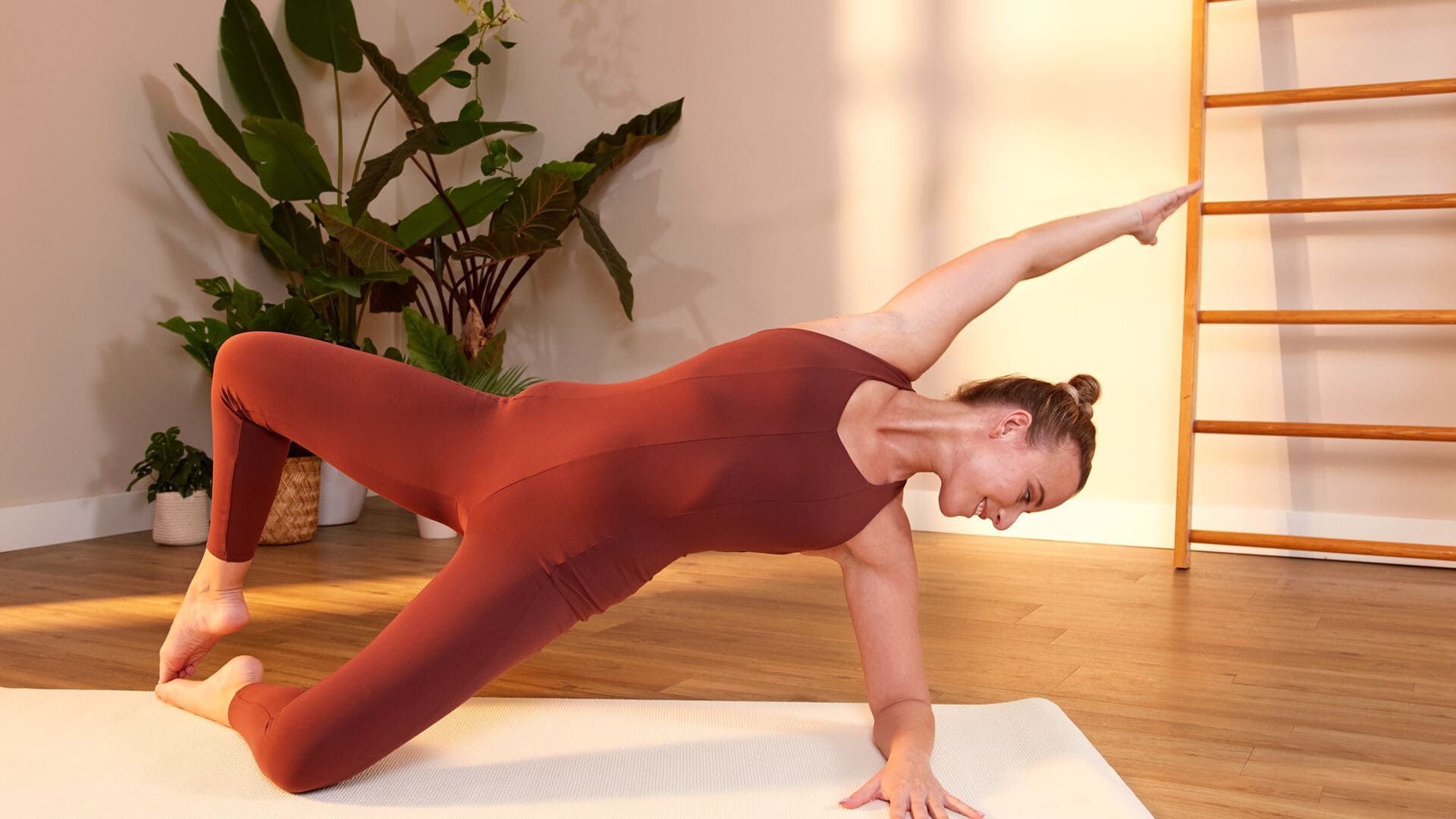
1. Stick to a regular sleep schedule
Your body has its own clock, and it runs best when it knows what to expect. Going to bed and waking up at the same time every day helps your system find a natural rhythm. Research shows that people with a steady sleep schedule not only enjoy better sleep quality, but also healthier days in the long run.
How to improve your sleep schedule
- Set a wake-up time and stick to it, even on weekends.
- Give yourself 7.5–8.5 hours in bed so you end up with at least 7 hours of actual sleep.
- Limit long naps so it doesn't throw off your bedtime

2. Create a wind-down routine
Your body needs a clear signal that the day is over. A simple 60–90 minute routine helps you shift out of “go” mode and prepare for rest. Taking time to slow down makes it easier to fall asleep and wake up feeling more refreshed.
Tips for a better wind-down routine
- Put phones and laptops aside to avoid stimulation before bed.
- Read a few pages, listen to calm music, or journal to clear your head.
- Do gentle stretches or breathing exercises to release tension.
- Prepare for the next day (like laying out clothes) so your mind can switch off.
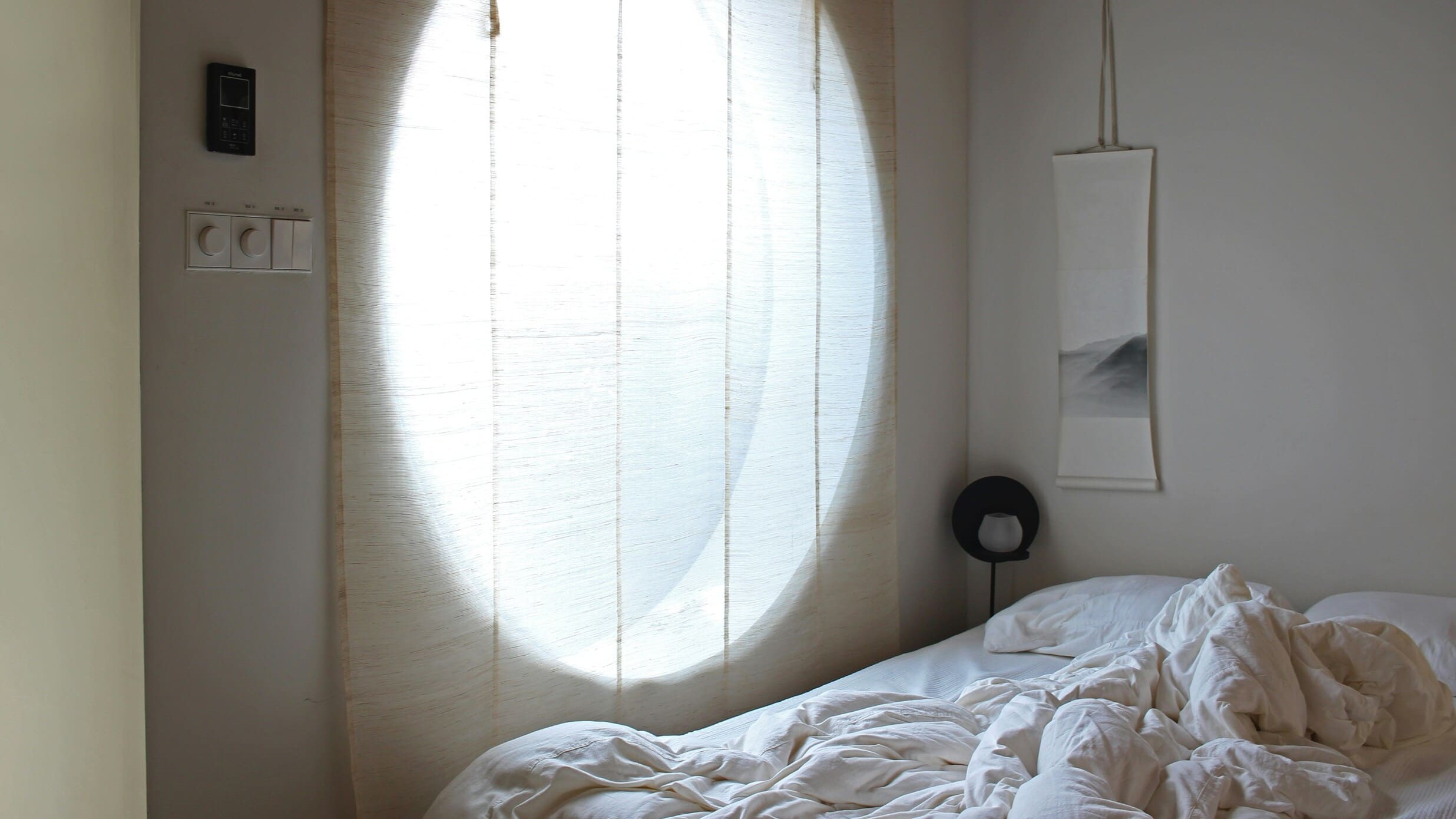
3. Use light to your advantage
Light controls your body’s internal clock. Morning daylight boosts alertness, lifts mood, and helps you sleep better at night. In contrast, strong light in the evening — especially from phones or laptops — delays melatonin release, making it harder to fall asleep and stay asleep.
How to use light to sleep better
- Get 10–30 minutes of daylight in the morning, ideally outdoors.
- Keep lights dim and warm in the evening to signal bedtime.
- Block unwanted light at night with blackout curtains or a sleep mask.

4. Cut caffeine and alcohol at the right time
Caffeine and alcohol both change the way you sleep, but in opposite ways. Caffeine is a stimulant with a half-life of about 5–6 hours, which means it can stay in your system well into the night. A late coffee or energy drink can reduce total sleep time and make it harder to reach deep, restorative sleep.
Alcohol might make you fall asleep faster, but it disrupts the second half of the night. It reduces REM sleep, increases awakenings, and leaves you feeling less rested the next day. Even small amounts close to bedtime can fragment sleep.
When to stop caffeine and alcohol for better sleep
- Cut caffeine at least 6–8 hours before bedtime.
- Keep coffee, tea, and energy drinks to the morning or early afternoon.
- If you drink alcohol, avoid it close to bedtime as it disrupts sleep quality.
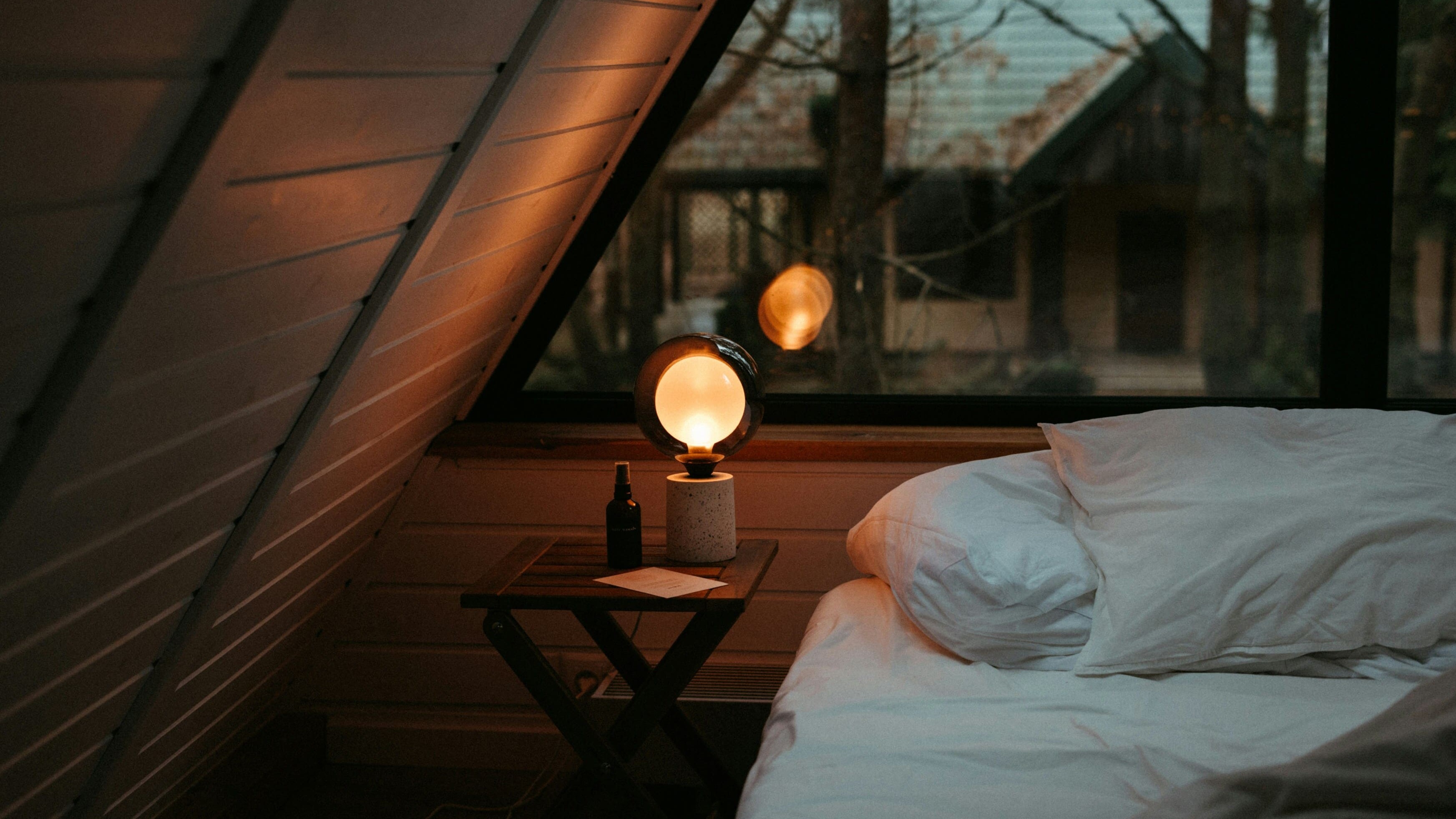
5. Optimize your sleep environment
Where you sleep shapes how well you sleep. Research shows that a cool, dark, and quiet room helps your body get into deeper, more restorative stages of sleep. Even small amounts of light or noise can suppress melatonin, raise stress hormones, and fragment sleep.
Another factor is how you use your bedroom. Sleep experts recommend keeping the bed for rest only. When you scroll, work, or watch TV in bed, your brain starts associating the space with wakefulness instead of sleep, making it harder to switch off at night.
Tips for creating a sleep-friendly bedroom
- Keep the room cool and well-ventilated.
- Block light with blackout curtains or an eye mask.
- Use earplugs or soothing background sounds to reduce noise.
- Use your bed only for sleep and rest, not for work or social media scrolling.

6. Balance activity during the day
Regular exercise improves sleep quality by helping you fall asleep faster, increasing deep sleep, and reducing night-time awakenings. Research consistently links 150 minutes of moderate activity per week with better sleep and overall health.
That said, timing does matter. High-intensity training too close to bedtime can make it harder to wind down, while lighter activities like stretching or yoga in the evening can help your body relax and prepare for rest.
How to use activity to improve your sleep
- Aim for about 150 minutes of moderate activity per week, that’s roughly 30 minutes a day, five days a week.
- Add in two sessions of strength training to support your overall health and sleep quality.
- Schedule intense workouts earlier in the day, leaving 2–3 hours before bedtime.
- In the evening, use calming routines like stretching, yoga, or breathing exercises.
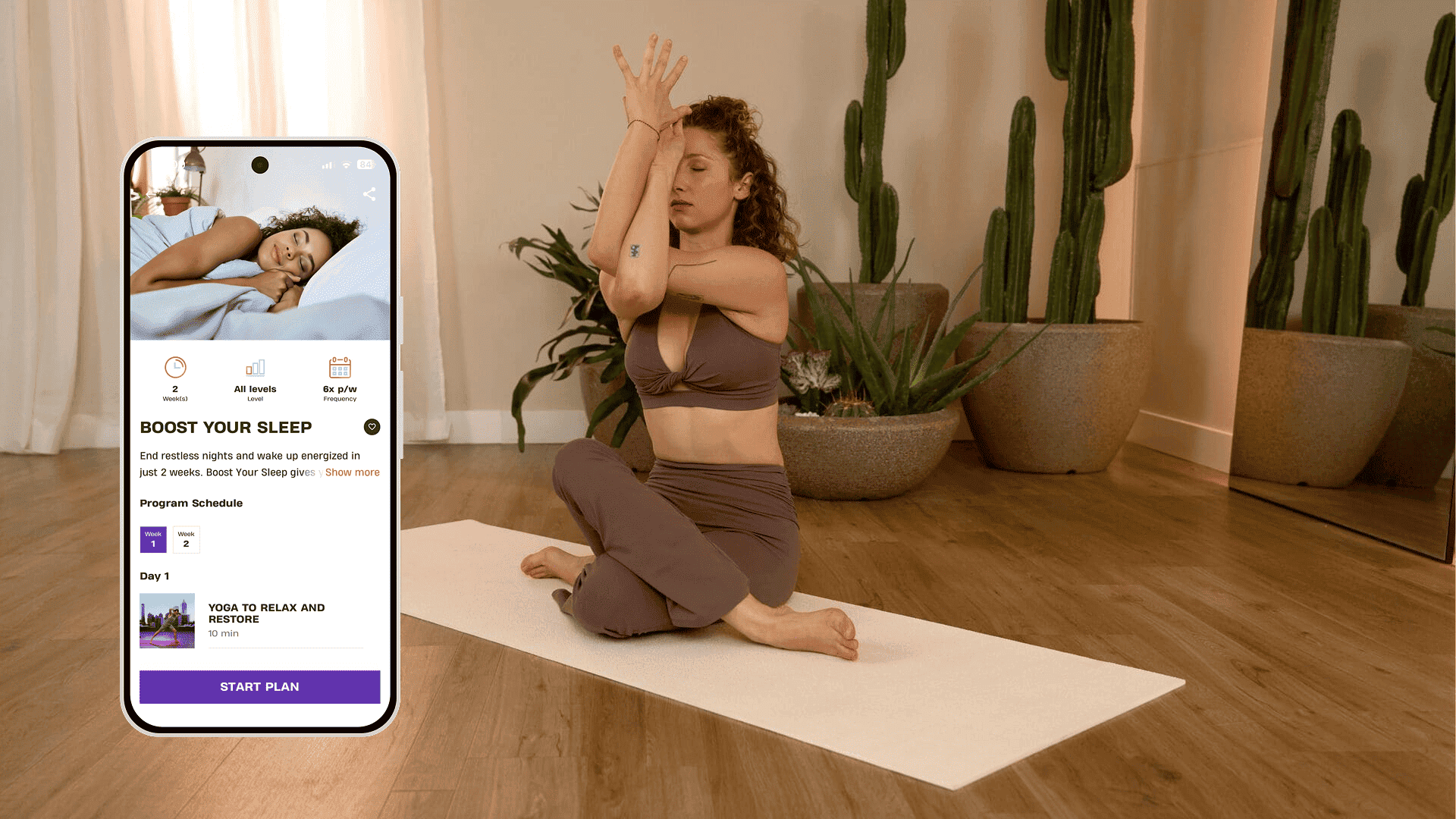
Boost your sleep with the Basic-Fit app
If you’d like some guidance putting these tips into action, the Boost Your Zen plan in the Basic-Fit app helps you calm your mind, relax your body, and create habits that lead to better sleep and recovery.
What the program includes:
- 3 calming yoga or stretching sessions per week to lower evening stress and prep your body for rest.
- 2 guided sleep meditations per week to help you switch off before bed.
- 1 weekly breathing exercise designed to calm your nervous system.
- 1 habit booster each week, focused on practical bedtime rituals.
- 1 weekly educational blog with tips for deeper, more restorative sleep.
Key takeaways
Most sleep struggles improve when you support your body with the right daily habits. Consistent sleep times, a calming wind-down routine, light management, and movement during the day all help your system reset and recover at night.
But if your sleep stays poor despite trying these steps, it’s important to look deeper. If your sleep problems are new, severe, or last longer than a few weeks, check in with a doctor for the right tests and support.
End each day with small actions that signal rest, and your nights will gradually feel deeper and more restorative.

